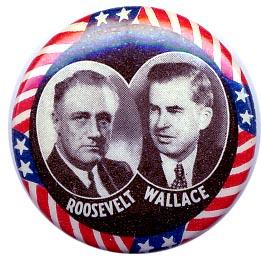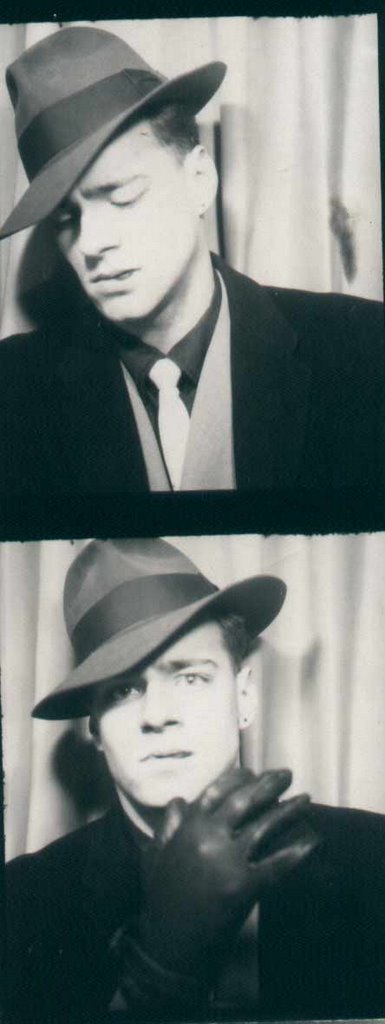Commerce Department data show that the share of national income going to wages and salaries in 2006 was at its lowest level on record, with data going back to 1929. The share of national income captured by corporate profits, in contrast, was at its highest level on record.
• Some 51.6 percent of total national income went to wages and salaries in 2006. This is a lower share than in any of the 77 previous years for which these data are available.
• At this stage of the 1990s business cycle, wages and salaries made up about 53 percent of national income — about 1½ percentage points more than today Each percentage point of national income is now equivalent to $117 billion.
• Corporate profits captured 13.8 percent of national income in 2006, which is the largest share in any year on record. At this point in the business cycle of the 1990s, corporate profits were receiving less than 12 percent of national income.
31 March, 2008
25 March, 2008
"That's why we're Democrats!"
Shortly after my parent's marriage in 1952, the newlyweds went to lunch at my mother's Aunt Orpha and Uncle Elmer's farmhouse. They were good, solid, Midwestern farm folk who had been born on the prairie, lived through two world wars, a depression, dust storms and Prohibition (which they probably didn't notice, since they were both tea totalers). They lived on the type of "family farm" that has long since passed from our landscape, not just a one-family operation growing crops, but a homestead that kept fruit trees, a vegetable garden, chickens and live-stock for their own consumption. When I was young, I don't remember ever seeing Orpha in anything but a gingham dress, nor Elmer wearing anything but overalls with a watch chain draping from the breast pocket.
Naturally, upon meeting these stolid folk, my father expected them to be the sort of farm-belt conservatives that turned out reliable Republican majorities in Nebraska and the other plains states.
My father's people were different. His father ran one of the largest insurance agencies in Omaha, wore a pin-stripe suit, lived in a fashionable section of town. He and my grandmother belonged to the Happy Hollow Country Club where they golfed several times a week, dined with friends every Saturday night, and where grandpa often took business associates. Grandpa was a past-president of the Chamber of Commerce, a Shriner, and a member of the prestigious Dundee Presbyterian Church.
Naturally, Orpha and Elmer expected my father to be the sort of business-oriented Republican that is to this day characterized by the epithet "country club Republican."
It came then, as a surprise to everyone, when the conversation at lunch that day turned to politics, to find out that they were all Democrats.
My father explained that, while his father was indeed a Republican, he had first become a Democrat after reading progressive thinkers in college. His Democratic bias was further strengthened during his stint in the Marine Corps where he lived with soldiers who had grown up poor during the Depression and regarded Roosevelt as something of a savior. Then he asked Orpha why she was a Democrat.
Rather than answer him directly, Orpha got up from the table and went over to a drawer. There, she pulled out a slip of paper and put it on the table in front of my parents. It read:
December 1932 / Corn @ 20¢ a bushel
"That's why we're Democrats!"
Naturally, upon meeting these stolid folk, my father expected them to be the sort of farm-belt conservatives that turned out reliable Republican majorities in Nebraska and the other plains states.
My father's people were different. His father ran one of the largest insurance agencies in Omaha, wore a pin-stripe suit, lived in a fashionable section of town. He and my grandmother belonged to the Happy Hollow Country Club where they golfed several times a week, dined with friends every Saturday night, and where grandpa often took business associates. Grandpa was a past-president of the Chamber of Commerce, a Shriner, and a member of the prestigious Dundee Presbyterian Church.
Naturally, Orpha and Elmer expected my father to be the sort of business-oriented Republican that is to this day characterized by the epithet "country club Republican."
It came then, as a surprise to everyone, when the conversation at lunch that day turned to politics, to find out that they were all Democrats.
My father explained that, while his father was indeed a Republican, he had first become a Democrat after reading progressive thinkers in college. His Democratic bias was further strengthened during his stint in the Marine Corps where he lived with soldiers who had grown up poor during the Depression and regarded Roosevelt as something of a savior. Then he asked Orpha why she was a Democrat.
Rather than answer him directly, Orpha got up from the table and went over to a drawer. There, she pulled out a slip of paper and put it on the table in front of my parents. It read:
December 1932 / Corn @ 20¢ a bushel
"That's why we're Democrats!"
Subscribe to:
Comments (Atom)



